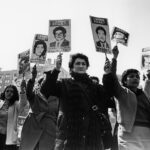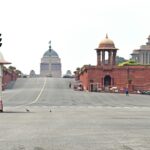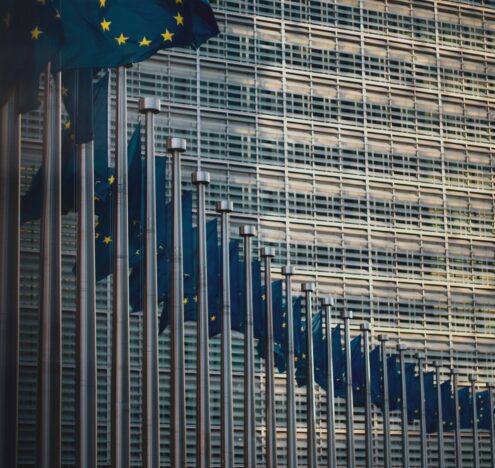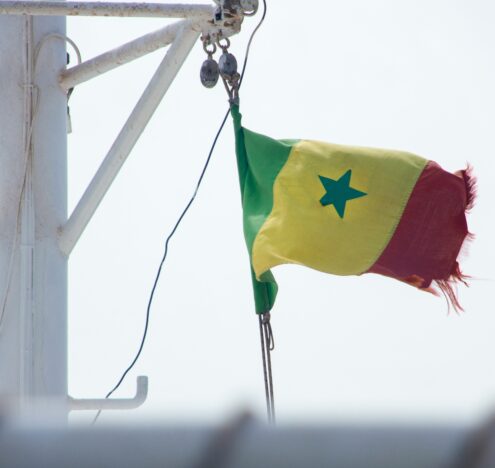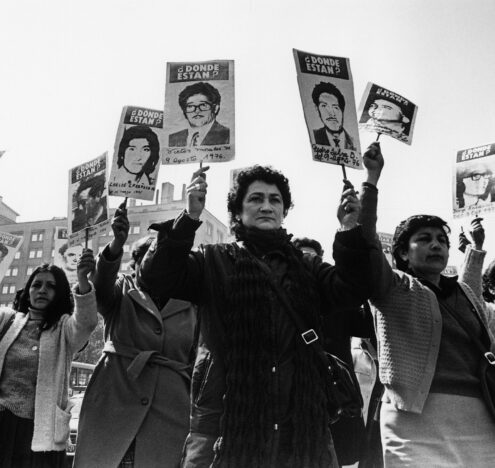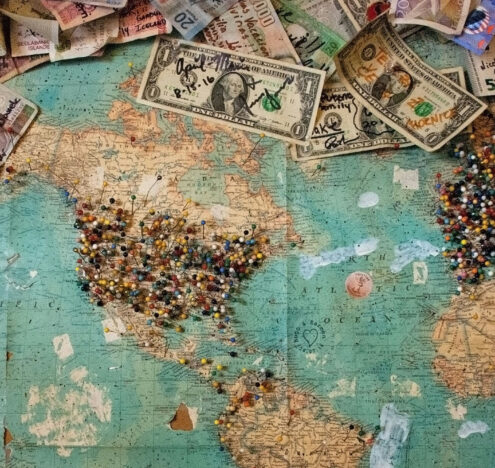Twenty-one years have passed since the United States declared a Global War on Terror in response to the attacks of Sept. 11, 2001. Much has been written about the wide-ranging impact of the post-9/11 wars. But beyond even the lives lost and the dollars spent on the war itself, there is an additional consequence that has not received enough attention but must be urgently addressed: the chilling impact that US counterterrorism has had on peacebuilding, humanitarian work, and civil society itself.
One of the biggest blows to peacebuilding work came in 2010 with the Supreme Court’s decision in Holder v. Humanitarian Law Project. In this case, the court broadly interpreted statutes prohibiting “material support” to terrorism to include any form of training or expert advice, even if such engagement was in furtherance of peaceful resolutions to conflicts. Quite simply, direct engagement with warring parties is critical for peacebuilders to be successful in their work, even if one of those parties is considered a terror group by the US government. In fact, peacebuilding is especially necessary in such cases, in the hopes that terror groups will abandon violent tactics and resolve their disputes peacefully. This, in effect, is what successful counterterrorism should look like. But current material support legal frameworks are blocking peacebuilders from doing their jobs.
PEACEBUILDING INTERRUPTED
There are numerous examples of where peacebuilders are facing obstacles when it comes to carrying out their work. In Nigeria, material support provisions posed a major roadblock to US support for girls who were rescued after their harrowing kidnapping from Boko Haram in 2014. After a peace agreement was reached in 2016 in Colombia, the material support prohibitions still effectively barred US peacebuilders from lending their considerable expertise to the peace process until the Revolutionary Armed Forces of Colombia (FARC) was removed from the Foreign Terrorist Organization (FTO) list in November 2021.
It takes political courage to acknowledge that the War on Terror is not working and to suggest changing our own nation’s laws, policies, and actions accordingly.
In Somalia, a growing chorus of foreign policy analysts are calling for diplomatic engagement with al-Shabaab, rather than doubling down on military approaches that have thus far failed to bring peace and stability to the country. But opportunities for civil society to engage in peacebuilding and dialogue are limited so long as al-Shabaab remains designated as an FTO and material support laws continue to follow the failed status quo. Further, broad-based sanctions make humanitarian work incredibly difficult in areas controlled by militant groups such as al-Shabaab, as thick layers of bureaucracy and legalese pose nearly insurmountable hurdles for humanitarian organizations attempting to provide direct help on the ground. The US government says such sanctions are meant to curb terrorism. But all evidence shows that terrorism in Somalia and the Sahel has only increased in the wake of US intervention, and that innocent civilians are the ones who truly pay the price of sanctions.
Afghanistan has become the latest and most extreme example of how US counterterrorism measures can shrink civil society and hurt innocent civilians while doing nothing to curb terrorism. When the Taliban took control of the country in August 2021, it was already designated by the United States as a Specially Designated Global Terrorist (SDGT) group. But as the Taliban became the de facto government of Afghanistan, the designation took on new meaning as humanitarian and peacebuilding groups who had been working in Afghanistan for years were forced to suspend operations and sort out what activities were or were not allowed in a nation controlled by an SDGT. While some of their concerns were eventually minimized by general licenses that the Department of Treasury issued over the following six months, one fundamental concern was not — the fate of some $7 billion in Afghan foreign reserves frozen by the United States when the Taliban took over.
As over 70 economists recently wrote in a letter to President Joe Biden, “Without access to its foreign reserves, the central bank of Afghanistan cannot carry out its normal, essential functions…” and as a result, “the economy of Afghanistan has, predictably, collapsed.” For the people of Afghanistan, this collapse has been marked by a series of economic crises, including inflated prices, depreciation of the Afghani, an inability to withdraw cash from banks, and severe challenges in accessing financial services. Unemployment has skyrocketed. Food and fuel prices have skyrocketed. Now, some 23 million Afghans are facing acute hunger, over 8.7 million of whom are facing extreme, life-threatening hunger.
In choosing to keep $7 billion in Afghan assets frozen, the Biden administration has created this crisis. Rather than treating these frozen funds as a bargaining chip in negotiations with the Taliban, the United States should treat them as a lifeline for the millions of Afghans who could starve if these funds are not released. It should do this in spite of whatever political costs may follow because preventing millions of deaths is both the morally right thing to do and the best way to support Afghan society in its struggle for a better future.
IT’S TIME FOR SOME COURAGE
Indeed, an urgent change is badly needed in US counterterrorism policy. Building in sunset provisions for terrorism designations and related sanctions would create space for important debates about the merits and drawbacks of a given terrorism designation based on a current analysis of circumstances. Requiring regular impact assessments of terrorism designations would help inform policymakers and the public about their benefits and consequences. Even these modest safeguards could make an important difference in the application of counterterrorism measures moving forward.
It has long been time for policymakers to find some political courage and dispense with outdated views of what it means to be “tough on terrorism.” The reality is that civil society is essential to brokering peace and meeting human needs — conditions that make terror groups much less powerful and much less likely to thrive. To be sure, it takes political courage to unfreeze Afghanistan’s foreign reserves, step away from sanctions regimes, and open the space for engagement with militant groups. Doing so may mean being labeled by political opponents as soft on terrorism, facing attack ads, and receiving fewer campaign contributions from the arms industry.
It takes political courage to acknowledge that the War on Terror is not working and to suggest changing our own nation’s laws, policies, and actions accordingly. Finding and applying that type of courage is the surest way to protect human rights and dignity that actually makes us all safer.
Ashleigh Subramanian-Montgomery is the associate director of policy and advocacy for the Charity & Security Network, a resource and advocacy organization working to promote and protect the ability of nonprofit organizations to carry out peacebuilding, humanitarian and human rights missions, and to advance national security frameworks that support rather than impede this work.









